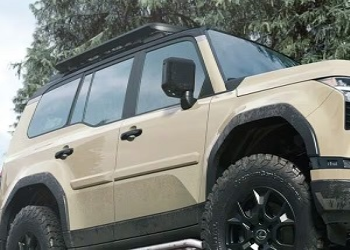Friday, January 22, 2021
By CarKhabri Team

Car Maintenance Tips For The Longevity Of Your Car (Series 11)
Regular servicing of your car offers you flawless drive and therefore it is imperative to get the car serviced on its scheduled time. Besides, this it is also important to pay attention to its proper maintenance and protect the components from damage. It is because there are lots of car owners who feel that servicing the car is an assurance that their vehicle will offer them a smooth drive. This although is true, but there are lots of components which require proper maintenance for existence.
Continuing our blog series on the Car Maintenance Tips for the Longevity of Your Car, today we will know about some of the components which if not paid attention can impact the performance of the car.
The Suspension System: The strong suspension system plays an important role in offering smooth travelling experience while moving through rough terrain. As the car gets older there is a decline in the performance of its suspension system, due to its wear and tear. As an impact, you start feeling bumps while driving on the rough roads even at the slow speed. It is the time when you think that it is because your car is getting older. Well, this is also a reason, but the main reason is that there is a decline in the performance of its suspension system. The suspension system plays an important role in controlling the bumps. It is, therefore, necessary to pay attention to its existing condition. For this get the suspension system checked once you have driven 50,000 miles. Also, you can get it inspected at the time of changing the oil or even replacing the damaged tires. The suspension system is a vast term and not restricted to only shock absorbers and struts, but also includes steering system, bearings, springs, linkages, and tires.

Check for the Cracks, Oil Contamination, and Swelling: Doing this is not possible for all the car owners, especially when you are driving your first car. For this, you can get the job done by an expert technician.
Check the Rubber Bushings: The bushings are mainly covered with the rubber coating to absorb the vibrations and offer the smooth functioning of the different components integrated into the suspension system. As the rubber can get melt due to heat while driving, it starts affecting the performance of the whole suspension system. The affected components will be track bars, control rods, struts rods, and sway bars.
Inspect the Debris or Oil Contamination on the Rubber Bushings: As the rubber in itself is a soft element it doesn’t require any oil or fluid for its working. On the contrary, oil is responsible for damaging the rubber because of debris. When the rubber comes in contact with the oil, it enhances the functionality of the rubber. However, at the same, the emergence of debris on the rubber damages its surface. The debris can be cleaned and removed from the rubber with the help of degreaser
.
Inspect the Ball Joints: There are two ways to check the ball joints. In the first method, you just need to hit the road and try to listen to the sound while driving or try to notice, whether the steering wheel is vibrating or not. If you notice any sound or vibration while driving then it is an indication that there is something wrong with the ball joints. In the second method you need to jack-up the car, remove the wheels and thoroughly check the ball joints. While doing this check for the rust, leakage of grease, or damaged rubber boots or something which grabs your attention and need to be replaced.

The Bounce Test: To check the condition of the struts and shock absorbers, it is one of the simplest tests to perform. Just try to push the seam or the front corner of the car and push it downwards for developing some types of bounces. If the car bounces three to four times, then it is an indication that you need to replace the struts and shock absorbers.




Comments (0)